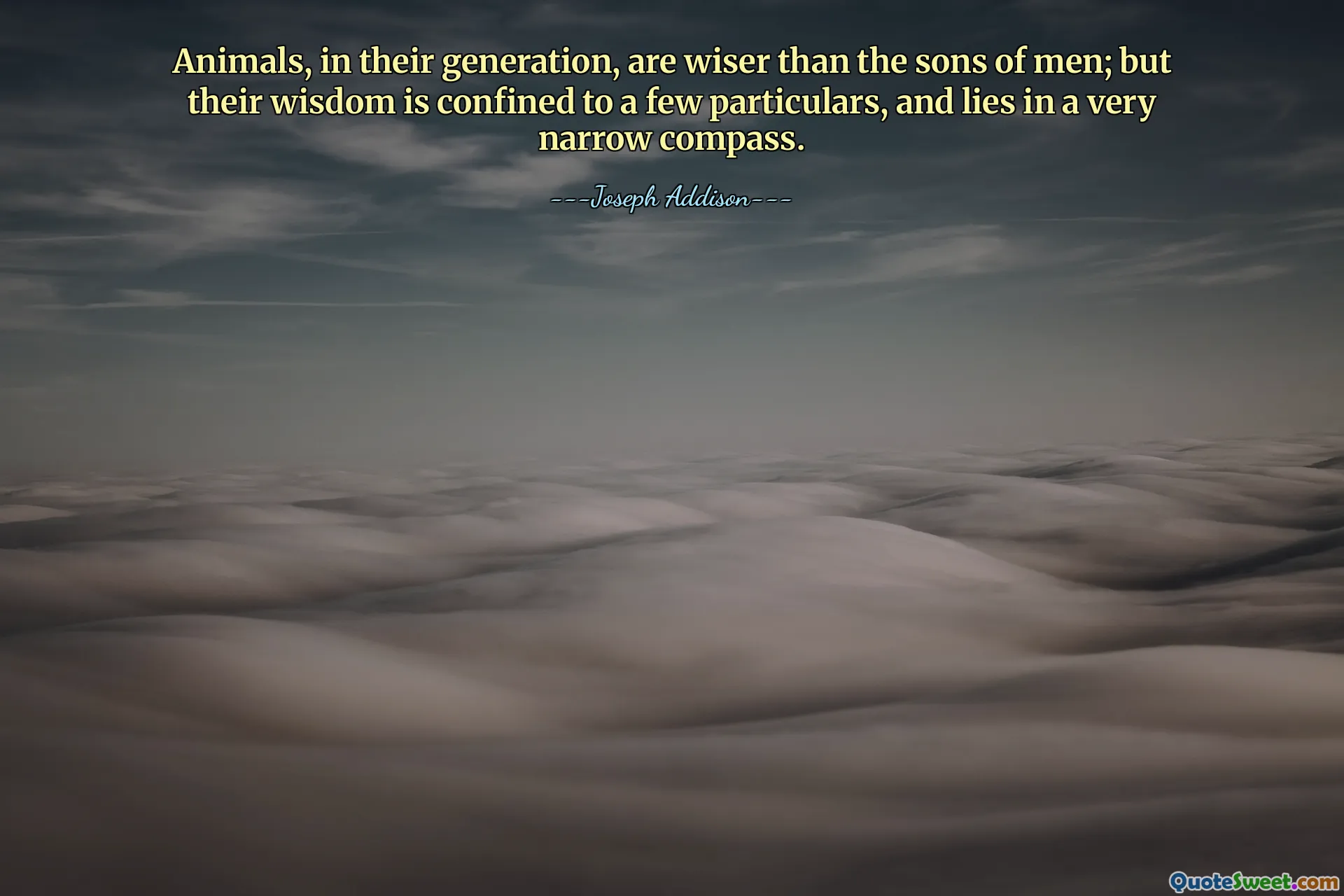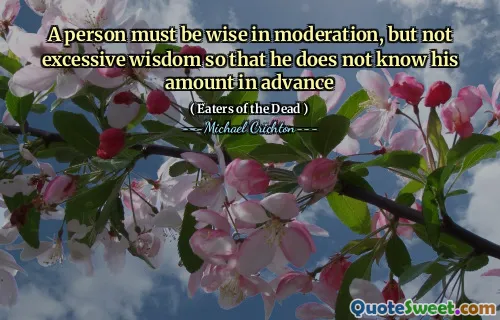
Animals, in their generation, are wiser than the sons of men; but their wisdom is confined to a few particulars, and lies in a very narrow compass.
This quote prompts a profound reflection on the nature of wisdom across different living beings. It suggests that animals possess an innate form of intelligence that surpasses humans in specific aspects, perhaps in instinct, survival strategies, and understanding of their environment. Unlike humans, whose wisdom is often broad, complex, and abstract, animals' wisdom is highly practical and specialized, allowing them to thrive within their natural niches.
The idea resonates with the notion that wisdom is not solely a matter of accumulated knowledge or intellectual capability but also involves a deep understanding of and harmony with one's surroundings. Animals, operating primarily through instinct and close perception, embody this form of wisdom efficiently, often without the burden of overanalyzing or overcomplicating their actions.
However, the quote also underscores a limitation: although animals may excel in certain practical matters, their wisdom is confined to their specific survival needs and does not extend to the broader, more abstract realms of human thought—such as ethics, philosophy, or technological innovation. Humans, blessed and cursed with reasoning, experience a wider spectrum of wisdom, but often lack the innate practical wisdom exhibited by animals.
This contrast invites us to reconsider the true nature of wisdom and to appreciate the forms it takes across species. It challenges us to value the intuitive and instinctual knowledge animals possess, while also recognizing the expansive, yet sometimes flawed, pursuit of wisdom among humans. Ultimately, the quote encourages humility and respect for the diverse ways of knowing within the natural world, urging us to reflect on the limitations and strengths inherent in our pursuit of understanding.











